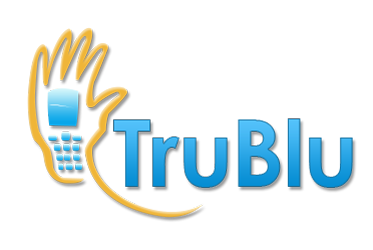Small business owners often struggle with getting their websites noticed in the vast sea of the internet. With so many websites competing for attention, it can be challenging to stand out. This is where search engine optimization (SEO) comes into play. SEO is the practice of increasing the quantity and quality of traffic to a website through organic search engine results. By optimizing your website for search engines, you can improve your visibility and attract more potential customers.
While SEO may seem daunting at first, it is essential for small business owners to understand the basics. By mastering the fundamentals of SEO, you can improve your website’s search engine rankings, drive more traffic, and achieve your marketing goals. This article will provide an overview of the SEO basics that every small business owner should know, including keyword research, on-page optimization, and link building. Whether you’re just starting out or looking to improve your existing website, this guide will help you get started with SEO.
Table of Contents
ToggleUnderstanding SEO
What is SEO?
SEO stands for Search Engine Optimization. It is a process of optimizing your website and its content to improve its ranking in search engine results pages (SERPs). SEO involves various techniques and strategies, such as keyword research, content creation, on-page optimization, link building, and more.
Importance of SEO for Small Businesses
SEO is essential for small businesses because it helps them to compete with larger companies by improving their online visibility and driving more traffic to their website. By optimizing your website for search engines, you can reach potential customers who are searching for products or services that your business offers. This can lead to increased website traffic, more leads, and ultimately more sales.
Moreover, SEO is a cost-effective marketing strategy compared to other forms of digital marketing, such as paid advertising. By investing in SEO, you can achieve long-term results and improve your online presence without spending a lot of money.
In conclusion, understanding the basics of SEO is crucial for small businesses that want to improve their online visibility and attract more customers. By optimizing your website and its content for search engines, you can drive more traffic to your website, generate more leads, and ultimately increase your sales.
Keywords and SEO
Keywords are the foundation of SEO. They are the words and phrases that people enter into search engines to find what they are looking for. Identifying the right keywords is crucial to the success of your SEO efforts. Here are some tips to help you identify the right keywords for your small business website.
Identifying the Right Keywords
To identify the right keywords, start by putting yourself in your customers’ shoes. What words and phrases would they use to find your products or services? Use keyword research tools such as Google Keyword Planner, SEMrush, or Ahrefs to get ideas for keywords related to your business. These tools will help you see how many people are searching for those keywords and how difficult it will be to rank for them.
Once you have identified your target keywords, make sure to use them throughout your website. Include them in your page titles, meta descriptions, headers, and content. However, avoid keyword stuffing, which is the practice of using too many keywords on a page in an attempt to manipulate search engine rankings. This can hurt your SEO efforts and make your website look spammy.
Long-Tail Keywords
Long-tail keywords are longer, more specific phrases that people use to search for something. They are often less competitive than short-tail keywords and can be a great way to target a specific audience. For example, instead of targeting the keyword “shoes,” you might target the long-tail keyword “women’s running shoes.”
Using long-tail keywords can help you attract more qualified traffic to your website. People who are searching for specific phrases are more likely to be interested in what you have to offer. Plus, long-tail keywords can help you rank for voice search queries, which are becoming more popular.
In conclusion, identifying the right keywords is essential to the success of your small business website’s SEO efforts. Use keyword research tools to find relevant keywords, and make sure to use them throughout your website. Additionally, consider targeting long-tail keywords to attract more qualified traffic.
On-Page SEO Techniques
When it comes to SEO, on-page optimization is one of the most important factors that can influence your website’s ranking on search engines. On-page SEO refers to the optimization of the content and HTML source code of a web page. Here are some on-page SEO techniques that can help small businesses improve their website’s ranking on search engines.
Meta Descriptions
Meta descriptions are HTML attributes that provide a brief summary of the content of a web page. They appear in the search engine results page (SERP) below the page title and URL. Meta descriptions are important because they can influence whether or not a user clicks on your website’s link in the SERP.
To optimize your meta descriptions, keep them concise, relevant, and engaging. Use relevant keywords and include a call-to-action to encourage users to click on your link.
Alt Tags
Alt tags are HTML attributes that provide a description of an image. Alt tags are important for on-page SEO because they help search engines understand the content of an image. Additionally, alt tags can improve the accessibility of a website for users with visual impairments.
To optimize your alt tags, use descriptive and relevant keywords that accurately describe the image. Avoid using generic terms like “image” or “photo” as they do not provide any useful information about the image.
URL Structure
URL structure refers to the way that URLs are formatted and organized on a website. A well-structured URL can help search engines understand the content of a web page and improve the user experience.
To optimize your URL structure, use descriptive and relevant keywords in your URLs. Use hyphens to separate words and avoid using underscores or special characters. Additionally, make sure that your URL structure mimics your website’s structure and hierarchy.
By implementing these on-page SEO techniques, small businesses can improve their website’s ranking on search engines and attract more organic traffic to their website.
Off-Page SEO Techniques
Off-page SEO refers to the actions taken outside of your own website to impact your rankings within search engine results pages (SERPs). These techniques help a site to rank higher and drive more traffic to your website. Here are some of the most effective off-page SEO techniques:
Backlinks
Backlinks are one of the most important factors in off-page SEO. A backlink is a link from another website to your website. The more high-quality backlinks you have, the more authoritative your website appears to search engines. To get backlinks, you can reach out to other websites in your industry and ask if they would be willing to link to your website. You can also create high-quality content that other websites will want to link to.
Social Media Signals
Social media signals are another important factor in off-page SEO. Social media signals include likes, shares, and comments on your social media posts. The more social media signals you have, the more likely search engines are to see your website as authoritative. To get more social media signals, you should create high-quality content that people will want to share and engage with on social media.
Guest Blogging
Guest blogging is a great way to get backlinks and improve your off-page SEO. Guest blogging involves writing a blog post for another website in your industry. In return, you get a backlink to your website. To get started with guest blogging, you should reach out to other websites in your industry and ask if they would be interested in having you write a guest post for their blog.
In conclusion, off-page SEO techniques are an essential part of any small business SEO strategy. By focusing on backlinks, social media signals, and guest blogging, you can improve your website’s rankings and drive more traffic to your site.
Local SEO
Local SEO (Search Engine Optimization) is the process of improving search engine visibility for local businesses, primarily those with brick-and-mortar locations. By following local SEO best practices, small businesses can improve organic traffic from searches performed by customers in nearby areas. Here are a few tips for optimizing your small business website for local SEO:
Google My Business
Google My Business is a free tool that allows small businesses to manage their online presence across Google, including search and maps. By creating and verifying your business on Google My Business, you can help customers find your business more easily and provide them with important information, such as your address, phone number, hours of operation, and website.
Here are a few tips for optimizing your Google My Business listing:
- Fill out your profile completely and accurately, including your business category, description, and photos.
- Keep your information up-to-date, including your hours of operation and contact information.
- Encourage customers to leave reviews on your Google My Business listing.
Online Reviews
Online reviews are an important factor in local SEO. They can help improve your search engine rankings and provide social proof to potential customers. Here are a few tips for managing your online reviews:
- Claim your business on popular review sites, such as Yelp and TripAdvisor.
- Respond to both positive and negative reviews in a timely and professional manner.
- Encourage customers to leave reviews by including links to your review profiles on your website and in your email signature.
By following these local SEO tips, small businesses can improve their online visibility and attract more customers from their local area.
SEO Tools
Small businesses can use a variety of SEO tools to help improve their website’s search engine rankings. Here are some of the most popular tools:
Google Analytics
Google Analytics is a free tool that allows you to track website traffic and user behavior. It provides valuable insights into how visitors interact with your website, which pages are most popular, and how long they stay on your site. By analyzing this data, you can make informed decisions about how to improve your website’s SEO.
SEO Plugins for Websites
There are many SEO plugins available for popular website platforms like WordPress and Shopify. These plugins can help you optimize your website for search engines by providing recommendations for improving your content, meta descriptions, and other important SEO factors.
Some popular SEO plugins include:
- Yoast SEO: This plugin provides a comprehensive set of tools for optimizing your website’s SEO, including content analysis, meta descriptions, and XML sitemaps.
- All in One SEO Pack: This plugin offers a range of features for improving your website’s SEO, including XML sitemaps, meta descriptions, and social media integration.
- Rank Math: This plugin provides a range of advanced SEO features, including schema markup, redirections, and 404 monitoring.
By using these tools, small businesses can improve their website’s search engine rankings and attract more organic traffic.
SEO Best Practices
When it comes to optimizing your small business website for search engines, there are a few best practices you should follow to improve your chances of ranking higher in search results. Here are a few key areas to focus on:
Creating High-Quality Content
One of the most important aspects of SEO is creating high-quality content that provides value to your audience. This means writing informative blog posts, creating engaging videos, and designing visually appealing infographics. When you create content that people find useful and shareable, you increase your chances of earning backlinks from other websites, which can boost your search engine rankings.
Mobile-Friendly Website
With more and more people using their mobile devices to browse the web, having a mobile-friendly website is essential for SEO. Make sure your website is responsive, meaning it adjusts to fit the screen size of the device it’s being viewed on. This will improve the user experience and make it easier for people to navigate your site on their phones and tablets.
Website Speed
Website speed is another important factor in SEO. If your site takes too long to load, visitors may leave before they even have a chance to see your content. To improve your website speed, consider compressing large images, minimizing the use of plugins, and using a content delivery network (CDN) to serve your website files from multiple locations around the world.
By following these SEO best practices, you can improve your website’s visibility in search engine results and attract more traffic to your small business website.
Frequently Asked Questions
What are some affordable SEO strategies for small businesses?
Small businesses with limited budgets can still implement effective SEO strategies. One affordable approach is to focus on optimizing the website’s content with relevant keywords, creating high-quality content that attracts backlinks, and building a strong social media presence. Another cost-effective way is to utilize local SEO tactics, such as claiming and optimizing Google My Business listing, building local citations, and getting listed in relevant directories.
What are the most important SEO tactics for small business websites?
The most important SEO tactics for small business websites include keyword research, on-page optimization, content creation, link building, and local SEO. Keyword research helps identify the keywords and phrases that potential customers use to find businesses like yours. On-page optimization involves optimizing website content, meta tags, and images for the target keywords. Content creation involves creating high-quality, informative, and engaging content that attracts backlinks and social shares. Link building involves getting other websites to link back to your website. Local SEO tactics help businesses rank higher in local search results.
How can SEO help small businesses grow?
SEO can help small businesses grow by increasing their online visibility, driving more traffic to their website, and generating more leads and sales. By optimizing their website and content for relevant keywords, small businesses can attract more targeted traffic from search engines. By building a strong online presence, small businesses can establish themselves as authoritative sources in their industry and attract more customers.
What are the different types of SEO and which is best for small businesses?
The different types of SEO include on-page SEO, off-page SEO, technical SEO, and local SEO. On-page SEO involves optimizing website content and meta tags. Off-page SEO involves building backlinks and social shares. Technical SEO involves optimizing website structure and code. Local SEO involves optimizing for local search results. For small businesses, a combination of on-page, off-page, and local SEO tactics can be most effective.
How can a small business improve their local SEO?
Small businesses can improve their local SEO by claiming and optimizing their Google My Business listing, building local citations, getting listed in relevant directories, and optimizing website content for local keywords. It’s also important to encourage customers to leave reviews and respond to them promptly.
What are some common mistakes to avoid when optimizing a small business website for SEO?
Common mistakes to avoid when optimizing a small business website for SEO include keyword stuffing, using duplicate content, neglecting mobile optimization, ignoring local SEO, and neglecting website speed and security. It’s important to focus on providing high-quality content that’s optimized for users and search engines, and to follow best practices for website design, development, and optimization.




